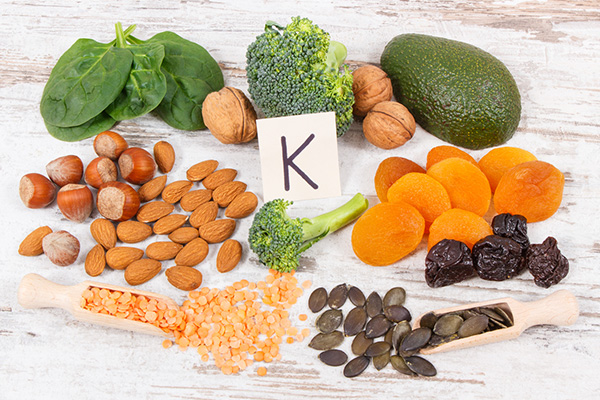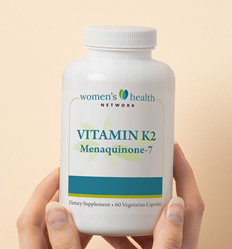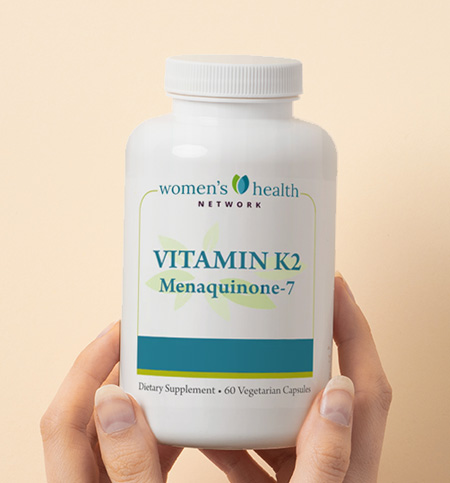Authored by Dr. Susan E. Brown, PhD
There are so many reasons why women especially should pay attention to their Vitamin K2 intake. Some Vitamin K2 you can get through your diet. Organic lean meats, organic eggs and hard or soft cheeses (especially blue cheese) can supply you with K2. Natto — fermented soybeans — is an excellent source of K2. Fermented vegetables like sauerkraut and seaweed are also pretty good sources. You often hear about kale and other leafy greens being touted for their Vitamin K content, but it’s mainly the K1 form.

Aside from dietary sources, K2 can also be produced in the body by certain beneficial intestinal bacteria. This is a reason why long-term use of antibiotics can lead to Vitamin K deficiency as it kills off this good flora.
Vitamin K is not a single nutrient, but the name given to a group of vitamins of similar composition. The two main groups that occur naturally are phylloquinone, or K1, and menaquinone, or K2. Of these two forms, Vitamin K2 — in particular the subset of K2 known as MK–7 — is the one you want to target. Vitamin K2 is more bioavailable, longer lasting and provides greater benefits in the body.
Benefits of Vitamin K2
- Vitamin K is important for healthy bones — it has the unique capacity to activate proteins that help to keep calcium in bone (and out of the arteries — see my point below).
- Vitamin K contributes to regulating inflammation in the body, which is key for healthy immune response and bone cell protection.
- Vitamin K helps to keep blood vessels more elastic and free from mineral build up. Several studies show that people who took Vitamin K2 as MK-7 had a reduced risk of coronary calcification and heart disease. (In other words, K2 as MK-7 keeps calcium in the bones and out of the arteries!)
- Even in patients with kidney disease, who are at risk of atherosclerosis and heart disease, small doses of Vitamin K as MK-7 (and Vitamin D) helped slow the progression of the disease.
It’s generally recommended that a therapeutic dose of Vitamin K2 as MK-7 is 90 mcg on a daily basis. Unfortunately, the average U.S. intake is only 9-12 mcg, if any at all! Taking a high quality Vitamin K2 as MK-7 supplement is an easy and practical idea for getting what you need.
Important note: Supplementing with Vitamin K may reduce the effectiveness of Coumadin and other blood thinning medications. If you are taking a blood thinner, you will want to talk to your doctor about how to still maintain healthy Vitamin K intake.
Okay, so that’s the latest news about Vitamin K! I’m sure there will be even more proof of its importance to our health as new research continues to emerge, but for now, nourishing your levels of this micronutrient can give you all the vital support it has to offer.









